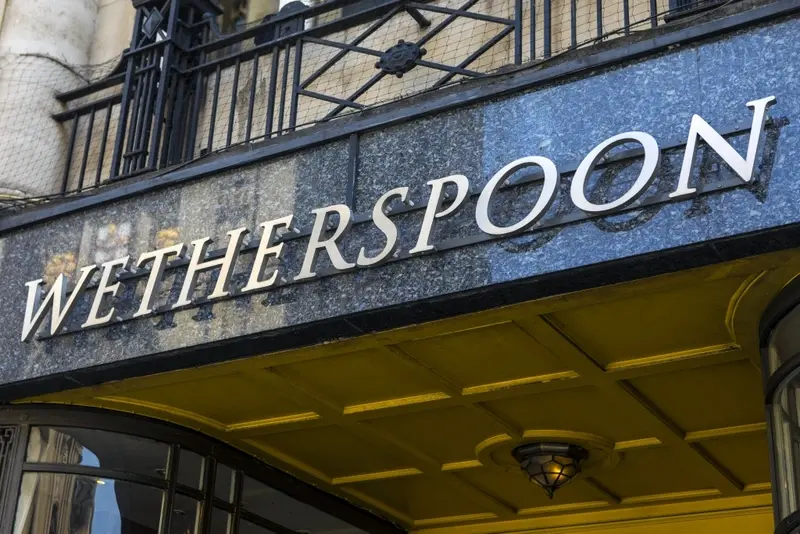
Pubs group JD Wetherspoon (JDW) continued to face a challenging environment over the 26 weeks to 23 January 2022 with revenues falling 13.5% to £807.4 million.
On a like-for-like basis sales were 11.8% lower despite the business operating without restrictions for most of the period. The trend has continued into the second half, with like-for-like sales down 12.4% in the period to 20 February.
The group traded just above breakeven at the operating level and reported a pre-tax loss of £21 million. This represents a big drop on the £77 million of operating profit generated in 2020.
The shares, which are down around 20% over the last six months, dipped 0.5% to 822.5p.
CHINK OF LIGHT
However, in the most recent three-week period trading has shown a marked improvement with like-for-like sales down 2.6% compared with pre-pandemic levels.
Greg Johnson, leisure analyst at Shore Capital, said he believed the base period comparison to 2020 would be ‘somewhat easier which might inflate the sales trend’.
Johnson commented: ‘Even so, it is encouraging to see trading across the broader market continue to recover. Input costs are expected to rise at modestly below the rate of inflation, although CPI has continued its upward trajectory.’
SLOWER RECOVERY
While Wetherspoon seems to be managing rising inflation well, its value-led proposition and lower margins make the business more vulnerable to inflation.
Russ Mould, investment director at AJ Bell, said: ‘The company’s business model has been more focused on volume than margins for years. This wasn’t such an issue when inflation was low.
‘Now prices are surging, those skinny margins mean it doesn’t take much to push the company from a profit into a loss and the debt pile is starting to build too.
However, if Wetherspoon responds by putting prices up too much its unique value-based selling point could be undermined.’
In addition, Wetherspoon’s estate is predominately located in high streets and city centres which have seen a slower recovery in compared with less crowded of the country.
Its older clientele has been more cautious to return to their old habits which has contributed to a slower recovery compared with peers.
Gregg Johnson maintained his hold recommendation saying: ‘Longer-term, as the ‘cockroach of the high street’, we wouldn’t bet against JDW materially increasing its market share. The weakness in the share price means the valuation does look attractive against historic levels, although it feels a long road to recovery.’
DISCLAIMER: Financial services company AJ Bell referenced in this article owns Shares magazine. The author of this article (Martin Gamble) and the editor (James Crux) own shares in AJ Bell.




